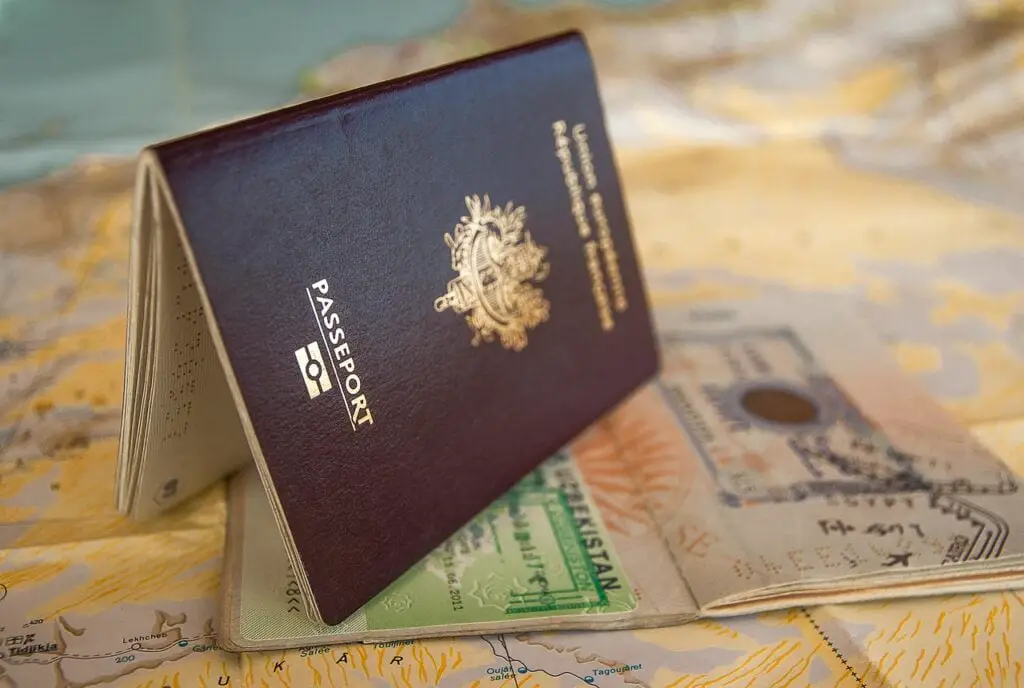Picking the best country to work overseas really comes down to job options, visa policies, pay, and the kind of life you want. A few countries earn their reputation by offering welcoming workplaces, solid salaries, and easier visa processes for expats.
Anyone looking for expat jobs should think about language, work culture, and daily routines, since these shape how quickly you settle in. Some places, like South Korea, Denmark, Australia, and Canada, are famous for high salaries or a good work-life balance best countries to work abroad.
Every destination has its own upsides and drawbacks, whether it’s the cost of living, healthcare, or language barriers expat jobs for Americans. When you compare salaries, don’t forget to weigh them against local living costs.
Key Takeaways
- Top countries offer different job markets, pay, and work-life balance.
- Visa policies and culture shape the expat experience.
- It’s smart to balance salary with living expenses and lifestyle.

Top Countries for Working Abroad
People move abroad for better pay, career growth, or just a change of scenery. Germany, Australia, and South Korea all have strong job markets, while cities like London and Amsterdam pull in English speakers from around the world.
Best Destinations for Expat Jobs
Some countries really shine when it comes to expat work, thanks to friendly visa programs, solid salaries, and plenty of job openings. Germany attracts skilled workers in engineering, IT, and healthcare, and its Blue Card program makes getting a work permit easier for non-EU nationals.
Australia is known for high wages and a steady demand for teachers, nurses, and tradespeople. Its working holiday and skilled migrant visas bring in expats from everywhere.
Canada offers a stable job scene, multicultural cities, and straightforward immigration. It’s a favorite for tech, finance, and healthcare professionals with experience.
Japan and South Korea are top picks in East Asia, especially for teaching English or working in tech. Both countries value education and offer good pay to foreign workers.
Want more detail? Check out GoAbroad’s list of top 10 countries for working abroad.
Emerging Markets for Job Opportunities
Some countries are rising fast and now offer more chances for foreign workers. Vietnam and Poland are on the radar in Asia and Europe, especially for people wanting to fill resume gaps or move up quickly.
Vietnam draws companies looking for English speakers, especially in teaching, tourism, and tech. Cities like Ho Chi Minh City keep adding English jobs, and the cost of living is still low.
Poland has become a hotspot for IT, finance, and customer support. You don’t have to speak Polish for many roles, and salaries are climbing as the economy grows.
Chile is also catching attention in South America, especially in business, mining, and education. In these countries, networking matters, a lot of jobs never get posted online.
Find more on growing job markets at Amber Student’s top 10 countries for job opportunities in 2025.
Popular Cities for English-Speaking Jobs
Landing an English-speaking job is easier in certain cities. London is a business magnet, with jobs in finance, media, tech, and hospitality. You usually don’t need another language, so it’s a go-to for expats.
Amsterdam is super international, with opportunities in tech, engineering, and creative industries. English is the main language at many companies, and they’re open to hiring from abroad.
Seoul and Tokyo offer English-speaking roles, especially in teaching and global companies. Both cities like international experience and often have gap year programs for young workers.
Americans (and others) can check out FlexJobs for the best overseas jobs for Americans.

Essential Work Visa and Residence Permit Information
Getting the right visa and residence permit is step one for working legally abroad. Every country has its own rules, deadlines, and paperwork, and not all jobs or nationalities are treated the same.
Visa Requirements by Country
Visa policies really vary. Australia offers a working holiday visa for certain young adults. Canada has several work permit types, including employer-sponsored and open permits. The UK uses a points system that weighs skills, job offers, and salary.
South Korea and Japan need employer sponsorship and often want proof of skills or a degree. In the US, most workers need employer sponsorship for H-1B or similar visas. You’ll usually need things like a job contract, education proof, and financial statements. Germany and Ireland have separate options for skilled workers and grads.
Residence Permit Application Process
Once you get a work visa, most countries ask you to secure a residence permit before or right after you arrive. You usually start at a consulate or embassy. Expect to provide ID, visa approval, and sometimes health insurance or a local address.
Processing can take weeks, or months, depending on the country. Common steps include:
- Proof of employment
- Background checks or police certificates
- Health exams or proof of insurance
- Paying the visa fee
Some countries allow permanent residence after you’ve worked there legally for several years, but the rules keep changing.
Short-Term Versus Long-Term Work Visas
Short-term work visas work best for seasonal gigs, internships, or contracts under a year. They’re easier to get but usually limit your job options and rarely let you bring family.
Long-term work visas, like those for skilled workers in Canada, Germany, or the UK, allow you to stay over a year. They take more paperwork but offer job flexibility and sometimes a path to permanent residence. Some even allow family reunification and benefits access.
Always double-check country rules, since overstaying can mean fines or even bans. Think about your long-term plans, short-term visas almost never lead straight to permanent residence.

Salary Expectations and Cost of Living
Salaries, living costs, and financial planning can look wildly different from country to country. Knowing what to expect helps you avoid nasty surprises.
Average Salaries by Industry
Salaries depend on your job and location. Tech jobs in Germany or Canada often pay more than $60,000 a year. Teaching English in South Korea or Japan usually pays between $20,000 and $35,000 per year.
Finance and engineering jobs in Singapore or Switzerland can pay even more. Healthcare workers in the UAE and Australia also see good wages. Hospitality jobs usually pay less but sometimes include perks like free meals or housing.
Do your homework, check current salary averages in your field for each country.
Cost of Living in Popular Expat Countries
Cost of living really matters, no matter what you earn. Living in Ecuador is quite affordable for many expats, thanks to cheap housing and food. Switzerland and Singapore, though, are pricey, housing and daily costs add up fast.
Some countries offset costs with big benefits. Sweden and Denmark have high taxes, but free healthcare and education balance things out. Housing in cities like London or Sydney can be steep, so many expats move just outside the city for better deals.
Financial Resources and Budgeting Tips
Before you move, get your financial resources lined up. That could mean savings, an emergency fund, or access to international banking. Using local banks can help you dodge extra fees.
Make a realistic monthly budget. Include rent, food, transport, insurance, and some fun. Check rent prices on expat forums or real estate sites. Stash away extra for emergencies or travel, just in case.
Lots of expats swear by budgeting apps or spreadsheets to track spending. Joining expat groups can help you find deals and avoid scams in your new country.

Work Culture, Lifestyle, and Quality of Life
Every country has its own work culture, and it shapes daily life in ways you might not expect. Pay, benefits, healthcare, and downtime all feed into how happy you’ll feel at work, and at home.
Work Hours and Professional Norms
Work hours and expectations are all over the map. In Denmark, people often work a 37-hour week, and work-life balance is a real thing. Employees are expected to leave on time and spend evenings with family.
South Korea can mean longer hours, sometimes up to 50 a week, though recent reforms are starting to bring that down. Professional norms also change country to country. In Germany, punctuality and direct talk matter a lot. Teamwork and personal responsibility are big deals.
Australia has a more laid-back vibe at work, and friendliness is appreciated. In the UAE, you might find a formal office culture, and weekends fall on Friday and Saturday, not the usual Saturday-Sunday.
Private health insurance is often a must or a perk, especially in places like Singapore or Switzerland. That peace of mind about medical care is worth a lot.
Quality of Life for Expats
Quality of life comes down to healthcare, cost of living, getting around, and even the environment. Sweden and Norway regularly score high for safety, public services, green spaces, and sustainable living. Employers usually encourage time off and give decent parental leave, which makes life outside work a lot better.
Singapore and Zurich offer high pay and modern infrastructure, but rent and private insurance can eat into your budget. In Germany and the Netherlands, biking and public transport are the norm, which makes commuting less stressful.
Expats often rave about Portugal and New Zealand for their friendly communities and how easy it is to fit in. English is common in many expat hotspots, but learning the local language helps you connect, especially outside the big cities.
Curious about countries with great work-life balance and quality of life? Here’s a list of best countries to work abroad and a breakdown of job opportunities with quality work settings.

Pros and Cons of Working Abroad
Working abroad has some clear perks, like learning new skills, better pay, and personal growth. But there are definitely challenges, too, homesickness, language hurdles, and job markets that need careful planning.
Benefits for Career and Personal Growth
Living and working in another country can boost your cross-cultural communication skills. You’ll end up working with colleagues from all sorts of backgrounds, which global employers really like.
Taking an expat job might mean a bigger paycheck, depending on the country and your field. Some places even throw in good benefits like health care and paid time off.
If you’re working as an au pair or in tourism, you’ll get unique experience and maybe try jobs you’d never find at home. It’s a different kind of adventure.
Living abroad also forces you to grow up fast. You’ve got to figure out things like housing and public transport on your own.
That kind of independence, It builds confidence and looks great on a resume. For more work-related benefits, check out the pros and cons of a career abroad.
Common Challenges and How to Overcome Them
Homesickness hits a lot of people. Being far from your family and friends can feel rough, but regular video calls and joining clubs help you find your people.
Language barriers can make daily life tricky. Taking classes and chatting with locals makes things smoother, even if you stumble a bit at first.
Getting a work visa sometimes turns into a slow, frustrating process. Start researching requirements early, and don’t be shy about asking employers or relocation experts for help.
Adapting to a new culture can feel overwhelming or just plain weird. Staying open-minded and learning about local customs makes the whole thing less stressful.
Want to dig deeper into the drawbacks? Here’s a link: Working Abroad: Pros, Cons & Career Tips.

Language Skills and Cultural Adaptation
Moving abroad for work means dealing with new languages and cultural norms. These things shape your daily life, job performance, and how comfortable you feel.
Importance of Language Skills for Expats
Knowing the local language helps with everything from talking to coworkers to figuring out transportation or shopping. It’s just easier when you can communicate.
Countries like Japan, Germany, or France usually expect at least basic language skills. Sometimes, you even need a certain level to get a work visa.
Language opens doors for networking and making friends. Employers also like when you can talk to clients or teammates in the local language.
It’s not just about work, speaking the language helps you avoid feeling isolated. Even a few phrases can boost your confidence and make life less intimidating.
Integrating into Local Cultures
Adapting to the local culture goes way beyond just learning words. You’ve got to pick up on how people act at work and in social situations.
Some places value punctuality and formal greetings, while others are more laid-back. Doing a little research on business etiquette before you arrive can help you avoid awkward first impressions.
Learning about local holidays and traditions helps you fit in and earn respect. It also saves you from some embarrassing misunderstandings.
Employers in popular expat spots like Singapore or Australia often run orientation sessions or diversity workshops. These can make settling in a bit less daunting.
Tips for English Speakers Abroad
If you speak English, you’ll find work in countries where English is the business language or where tourism is big. The United Arab Emirates, Singapore, and parts of Europe have jobs that don’t always require other languages.
Still, locals usually appreciate it if you try to speak their language, even just the basics. Simple greetings go a long way in everyday interactions.
Apps, online courses, and language exchanges are good for practice. Joining local groups, whether it’s sports, hobbies, or whatever, helps you pick up cultural habits and make friends.
Honestly, patience and an open mind are your best allies. For more advice, here’s the FlexJobs guide to overseas jobs.
Frequently Asked Questions
Some countries pay expats really well, while others have more job openings or a better work-life balance. Visa rules, language, and cultural adjustment all play a role, depending on where you go.
What are the top countries offering the highest salaries for expats?
Switzerland, Singapore, and the United States usually top the list for best salaries for expats. In Switzerland and Singapore, you might get high wages plus perks like housing allowances and health coverage.
Just remember, the cost of living in these places can be pretty steep. It’s something to keep in mind before you jump in.
Which countries have the most job opportunities for foreign workers?
Australia, Canada, Germany, and the United Arab Emirates are famous for their demand for skilled workers. They have strong economies and lots of jobs in engineering, healthcare, and teaching English.
The number of opportunities depends on your skills and experience, so it’s not a one-size-fits-all thing.
What are the best European countries for English-speaking expats seeking employment?
The United Kingdom, Ireland, and the Netherlands are favorites for English-speaking expats in Europe. Big companies in the Netherlands often use English as their main language, and there are plenty of international job listings.
Germany and Sweden also have opportunities in tech and engineering. If you want more options, check out this guide to the best countries to work abroad.
What are the key factors to consider when assessing the pros and cons of working abroad?
Salary, benefits, job security, cost of living, and work-life balance all matter. You’ll also want to look at healthcare, education, and the local culture.
Don’t forget about safety, how easy it is to get a visa, and whether you can grow your career. Here are more reasons and tips for working abroad as an expat.
How do work visa requirements and processes compare across different countries?
Visa rules are all over the map. Australia and Canada use points-based systems that focus on your education and skills.
The U.S. usually ties work visas to employer sponsorship, which can be tough to get. Some countries offer working holiday visas for younger folks, while others want you to have a job offer before you arrive.
If you’re a U.S. citizen and want more advice, check out this guide on working abroad and visas.
What should expats expect regarding language barriers and cultural integration in a new country?
If you don’t speak the local language, language barriers can trip you up in daily life and work. Some countries, like the Netherlands or Sweden, use English so much that it feels almost effortless to get by.
But there’s more to settling in than just the language. Getting used to local customs and social norms matters if you want to build real connections and feel at home.
Honestly, patience and a genuine willingness to learn go a long way with both language and culture. It’s not always smooth, but it’s worth the effort.
You Might Also Like:
If you enjoyed this post on Want to Work Overseas? Discover the Best Countries for Jobs and Rich Culture, you might also like: Guide: How to Work Abroad and Make Money While Traveling, Discover the Best Travel Health Insurance for Your Trip, Solo Travel Made Easy How To Stay Safe And Explore The World.
